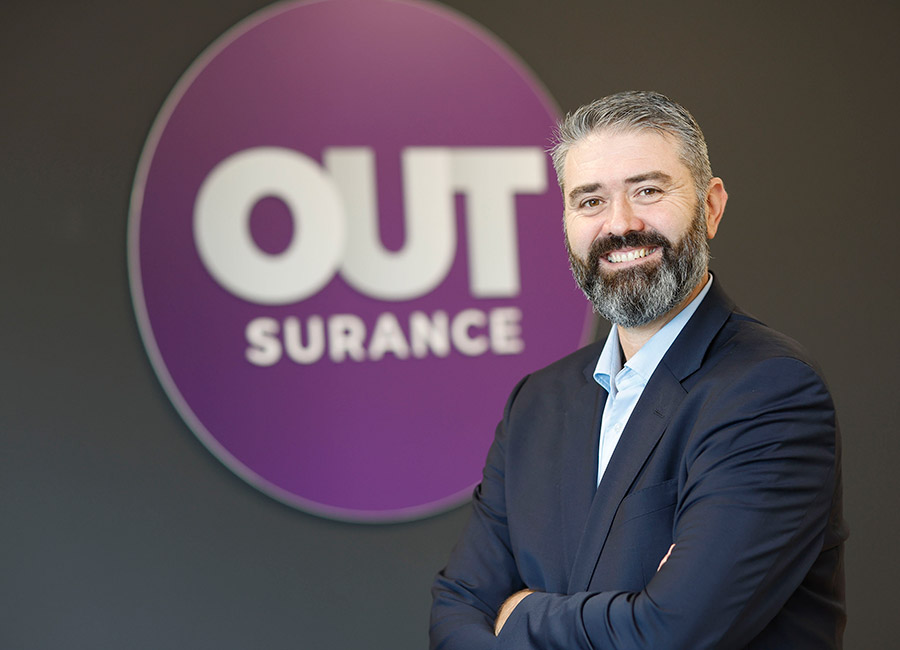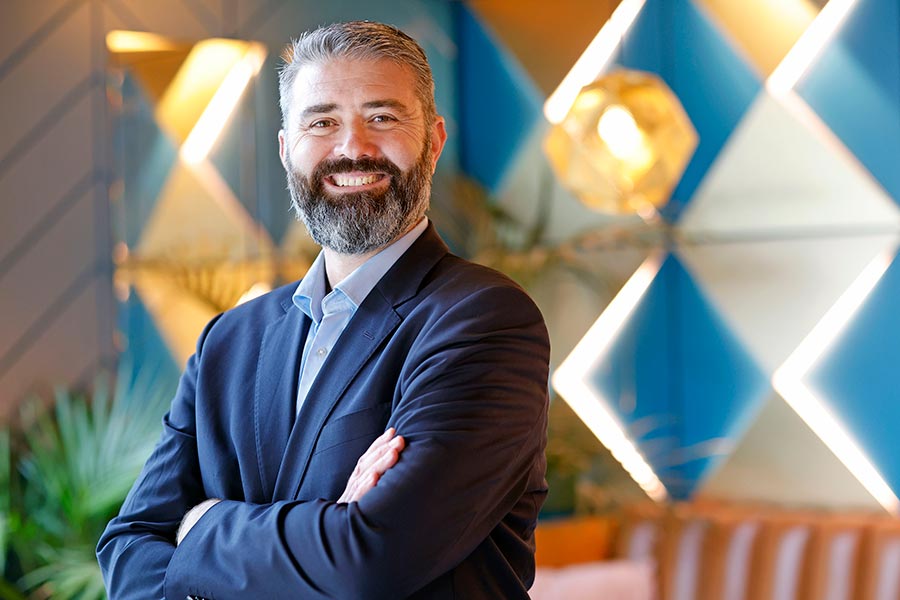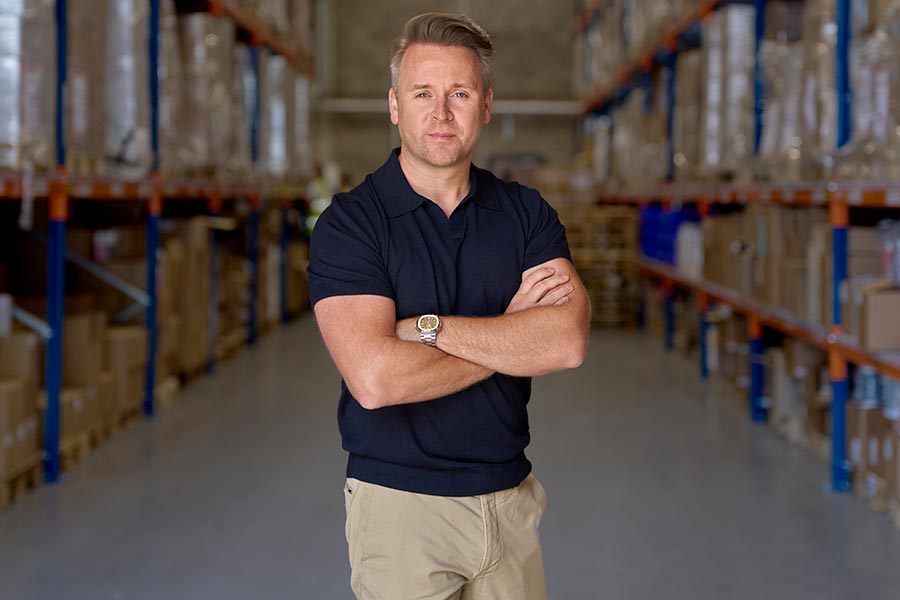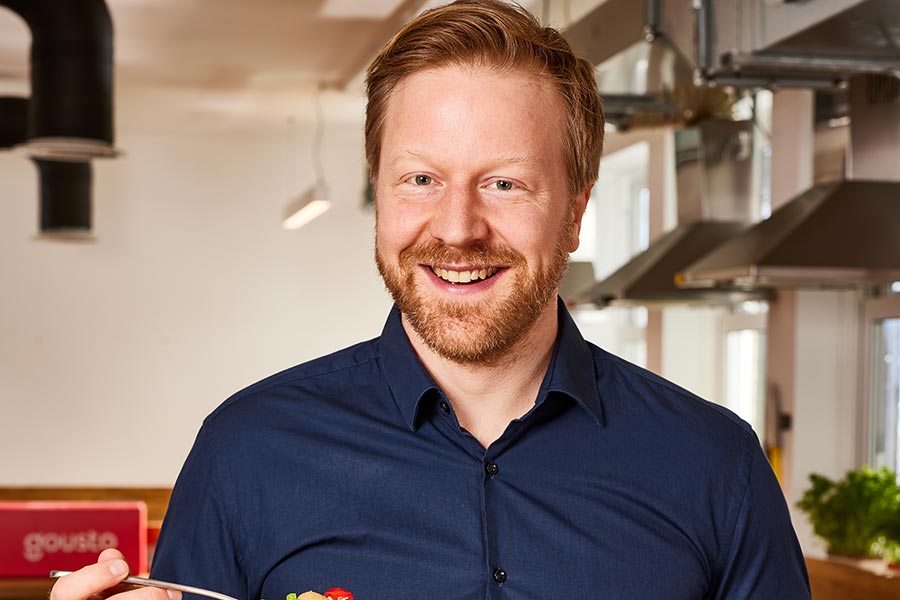Senior executives in some of Ireland’s biggest companies reflect on leadership, management styles and the mentors who inspired them
"Seeing the first round of future leaders promoted within our business, people that had put trust in us as a company and had moved their career to us in the early days when we were very small was a proud moment," Peter Broome, CEO of OUTsurance.
Who has most influenced your leadership style?
It's probably been a combination to tell you the truth of lots of different leaders over the years.
There have been inspirational leaders that have really taken an interest in me in my career, and have been leading me towards higher and higher roles in leadership.
My career has always been, from a very young age, about leading people in various industries.
In insurance most recently, but prior to that, I was in manufacturing, retail, warehouse and wholesale.
It's been a diverse career, working with a lot of different leaders, and I think that's helped shape the leader that I've become today.
Are there any leaders you admire?
Hugo Schreuder, who was my CEO at Youi Insurance twice, he was there for the original founding of the business and then came back again some years later to take over the helm again.
He was just a truly inspirational leader who cared about people and was passionate about what the company was doing for the people that worked within it and for the customers.
It was very easy to fall in love with the business and what you could do for people when you got a leader that's that passionate and cares about you.
Describe your leadership style in three words.
I'd say collaborative, empowering and fun.
Is there a piece of leadership advice that stuck with you?
Teddy Roosevelt said people don't care how much you know until they know how much you care. I've probably butchered that quote, but it was along those lines.
It’s about making sure that as a leader, you care about the people that you're leading and that you’re investing in them.
How do you handle ‘managing up’?
My approach is very much full transparency and to be honest, no surprises. Communicate early and often with either the person you directly report to or boards.
I think all that people want to know is to be informed and be kept up to date with what's happening and to feel trust that they know that if something's going on, you're going to let them know very early in the piece and seek their counsel.
I think if you develop that sort of a relationship when you're managing up to boards or senior executives, it's always seemed to work fairly seamlessly for me.
What kind of workplace culture do you aim to foster?
We have a very, very strong team focus. Very collaborative. We try to make the workplace quite dynamic, but we keep it quite clear we're focused on what the goal is.
Because if everybody's focused on the goal, and you all understand your role in helping the company achieve that goal, it gives purpose to the work that you're doing.
How do you handle making difficult decisions in a kind of a high pressure environment?
I try to keep perspective, so don't get too close to the problem.
And also recognise it's not necessarily your decision to make on your own. You can seek counsel.
You talk to your team around you, you can talk up to the senior leaders that you have and board to seek their counsel. That's not a sign of weakness.
I think it's quite smart to collaborate and try and get different views.
It helps you then make a decision with a lot more confidence. You can, you can move forward and then own the decision, which I think is very important.
How do you balance the strategic and day to day demands of your role?
There's a concept and I think it came out of Harvard Business School around zooming in and zooming out.
And I think if you get comfortable with that, you don't spend too much time thinking in the high-level strategic, which you absolutely need to do, but you also need to be able to zoom in on the operational and get into the detail, but you don't want to get stuck there.
I think developing a pattern, and I'm far from perfect at it and I’m still trying to get the right mix, but being able to zoom in and out between those two at the right cadence and down to the right level of detail and out to the right level of horizon scanning, I think that's that's quite important.

What are the opportunities and challenges for the business?
I think the challenge initially is to establish a brand, which we've been working very hard on, but you need to build trust.
I think Irish consumers have been burnt in the past, so when a new entrant comes in, it's exciting, and they think that's great, because they want the competition, but they want to see you build trust first of all.
So we're going to go through a period of time where people are going to give us a try with one of our products and see how we go before they'll trust us with some of those bigger investments of their home as an example.
We're already seeing that and people are coming to join us at a much greater rate, which is fantastic. I think the first challenge, build trust and then start to scale.
But in that's the opportunity. It's a market with a lot of very good competitors, but none of the competitors have major market shares.
What's your proudest moment with the company?
There was so much work done by the team to get the license that we were granted by the Central Bank, which was an honor.
But I'd have to say, seeing the first round of future leaders promoted within our business, people that had put trust in us as a company and had moved their career to us in the early days when we were very small [was a proud moment].
To watch some of those people move from advisors into team leader roles and then to operations manager roles, was a pretty proud moment for us.









